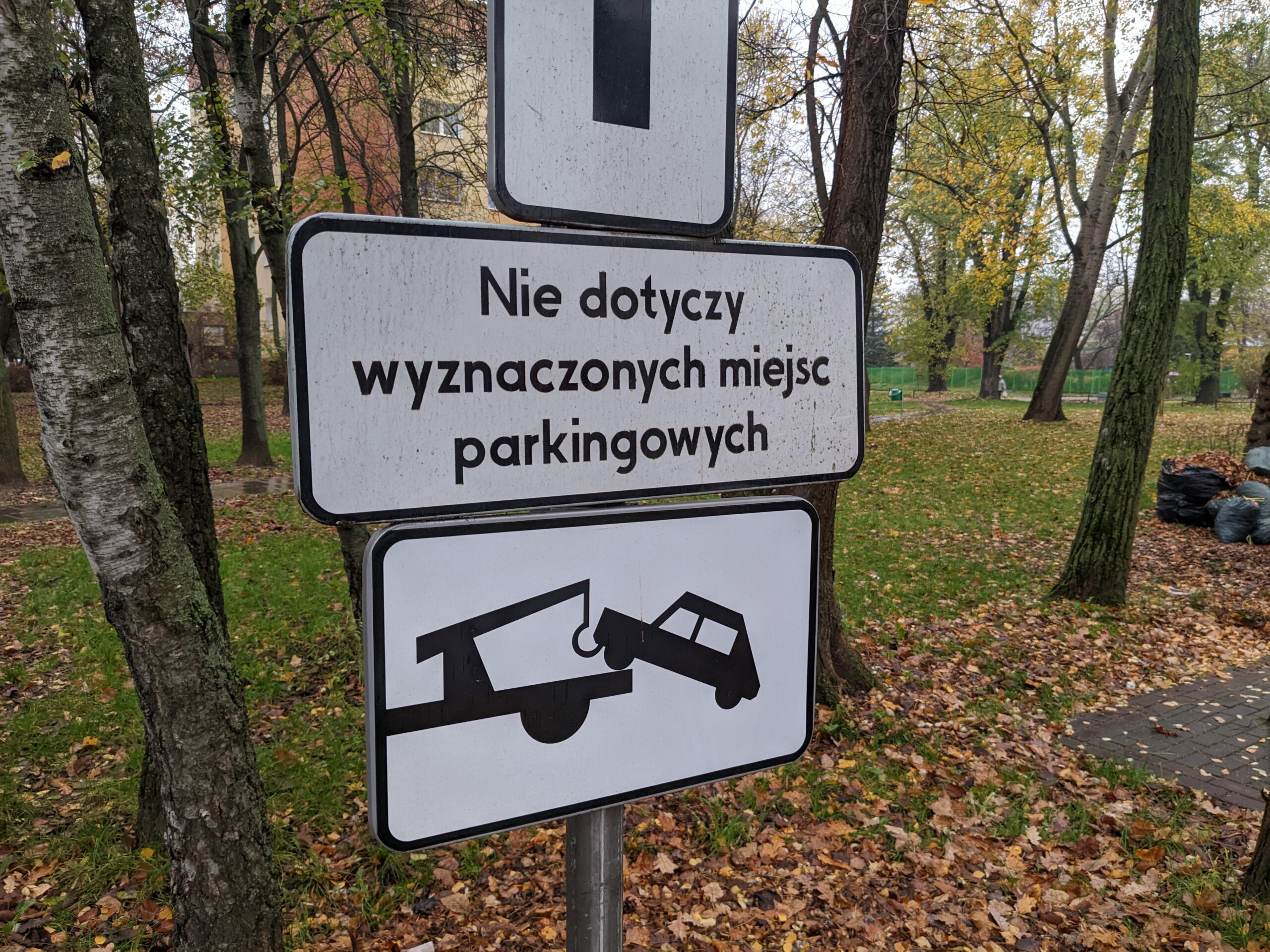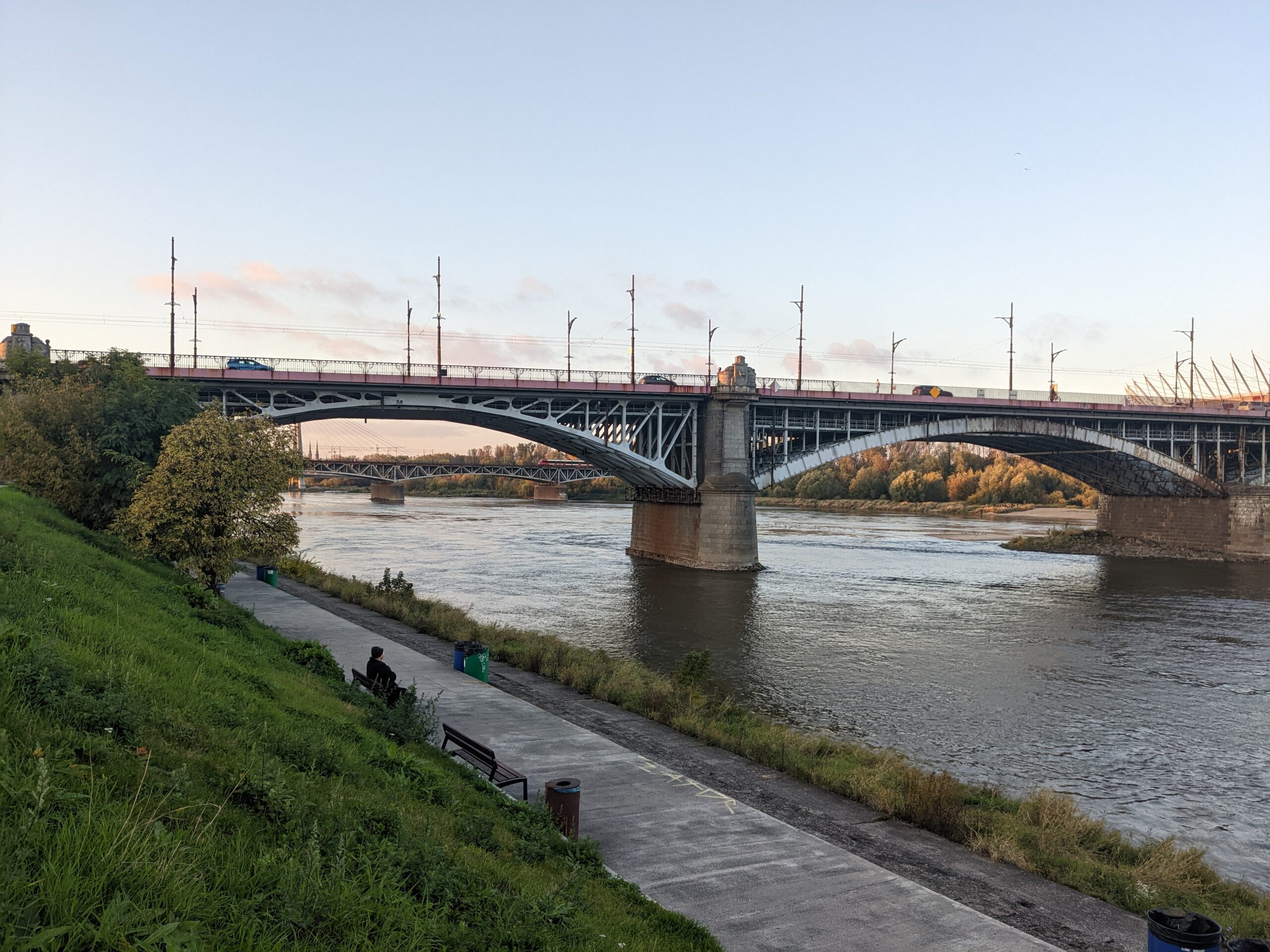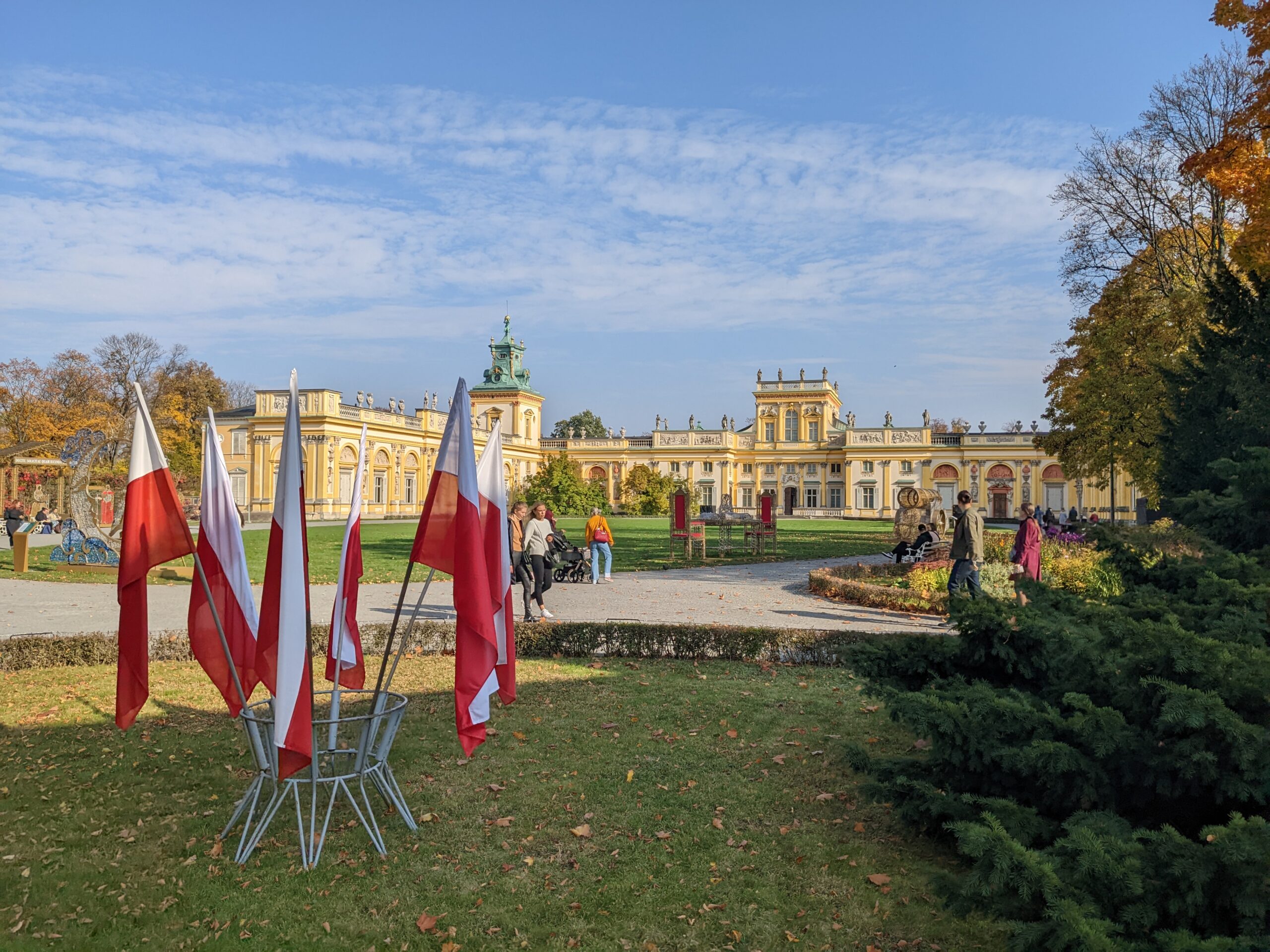Here are the main reasons Polish is so difficult to learn, in order of significance:
- It’s extremely difficult to understand spoken Polish
- Grammatical cases with complex declension rules
- Numbers are very difficult to use
- Verb aspect
- Challenging pronunciation
When I decided to learn Polish, I came across dozens of articles and forum posts complaining about the difficulty of the Polish language. To be honest, I kind of doubted Polish could possibly be that difficult to learn.
I’ve studied languages in the past, even “hard” ones like Russian, and figured Polish couldn’t be all that different.
Fast forward to right now. I’m writing this from a cafe in Warsaw where I’m entering my 7th week of an intensive Polish language course–and I need to admit, the Polish language is kicking my butt.
In this post, I want to dig into the ins and outs of Polish grammar and the other aspects (no pun intended) that make this such a difficult language to learn. Keep in mind, I’m writing this as a native English speaker, so your experience may differ, especially if you already speak a Slavic language.
Spoken Polish is Hard to Understand
The first hurdle I faced when I started learning Polish is that it’s incredibly hard to understand spoken Polish.
Other languages I’ve studied, like Italian and French, are driven by vowel sounds. In spoken Italian, for example, words like “sono”, “bene”, or “tutto” are easy to pick out of a sentence because of their long, emphasized vowel sounds.
Our brains naturally latch on to vowel sounds, and discerning different vowel sounds is a primary way our brains parse the spoken language we hear. It’s why babies start by saying “eh-oh” before learning to say hello, or “ah-ee” before saying doggy.
In contrast to French or Italian, Polish has lots and lots of consonants with relatively shorter, muted vowels. As a result, it’s very hard to pick individual words out of a spoken sentence in Polish.
Polish is full of muffled consonants, too. To a beginner, it seems like every other sound in spoken Polish is “sh” or “j”. All of the consonants in Polish sort of blend together and the language ends up sounding more like ASMR than something you could actually understand.
For example, take the Polish word for sorry/excuse me, “Przepraszam”. Pronounced like p-sh-eh-pra-shah-m, you can see how even basic Polish words tend to be overcrowded with consonants and “sh” sounds.
In other words, there is a lot of static in spoken Polish, and not a whole lot of signal. For a fresh learner whose native language is English or a Romance language, it can take months of listening practice just to parse out the individual words in a sentence of spoken Polish, let alone understand what’s being said.

Grammatical Cases
Not only are the spoken sounds of the Polish language hard to understand, but the language uses a notoriously difficult system of grammatical cases that further complicates things.
If you’re not familiar with grammatical cases, then you can think of them as being similar to verb conjugations, but for nouns. Verbs change in form depending on the subject, or who is doing the action.
In languages with cases, nouns also change forms depending on their relationship to the verb.
For example, the Polish language has an instrumental case which governs how nouns should transform when used as instruments or tools of the verb.
The Polish word for car is samochód. But, when you want to say that you are travelling by car, the noun must be transformed from samochód to samochodem.
The sentence “jadę samochodem” (I travel by car) requires the noun for car (samochód) to take on the instrumental case, because it is being used as a tool to accomplish the verb (jadę/jechać–to go).
This is just a single example of a single case, but Polish has 7 different cases and any adjectives associated with the declining nouns must also take on new forms, so things get really tricky really fast.
If your native language doesn’t have cases (English), then it’s easy to become overwhelmed. You’ll need to memorize how Polish verbs conjugate, but you’ll also need to learn how nouns and adjectives change forms in the singular and plural for each of the 7 cases.

Numbers are Difficult to Use
The more you study languages, the more you realize how easy English is. We don’t have cases, we don’t have actual verb conjugations, and numbers are numbers.
Well, unfortunately Polish isn’t as noob-friendly, especially when it comes to numbers. Depending on what you are trying to say, you’ll have around a dozen ways to say a number in Polish. For example, there are a whopping 14 ways to say the number two.
This is because, as nouns (and sometimes adjectives), numbers in Polish need to be transformed according to the rules of case, which we touched on above.
So, take for example the number two in Polish, “dwa” (pronounced dvah). If we want to say “I don’t have two books” in Polish, then we need to transform “two” and “books” into the proper case (genitive).
Dwa becomes dwóch, and books (książki) becomes “książek”. The resulting sentence is “nie mam dwóch książek”.
Not only do the actual numbers change form in Polish, but it can be quite confusing to express that you have multiples “of something”.
For example, to say you have three Złoty (Polish currency) is “mam trzy złote”, but to say you have six Złoty, you must use the genitive form of Złoty, “mam sześć złotych”.
Why must you use a different form of złoty for 3 złoty than for 6 złoty? Numbers ending in 2, 3, 4 must use different forms for the noun than numbers ending in 0, 5, 6, 7, 8, or 9. Because, well just because 🤪.
As you can see, using numbers in Polish can become quite a hassle, especially if you’re used to having a single form for numbers.
Polish Verbs Have Aspect
If you haven’t been scared off by the points above, then verb aspect may be the straw that breaks the camel’s back.
See, in English we have a single verb that we can manipulate through tenses to mean different things. So, for example, “I was watching TV” and “I have watched TV” both use the verb to watch, but we use different tenses to create slightly different meanings.
In Polish, nearly all verbs come in pairs of two–a perfective and an imperfective aspect. So, for example, the verb in English “to help” actually translates to two verbs in Polish, “pomagać” and “pomóc”.
Both “pomagać” (imperfective) and “pomóc” (perfective) are the verb for “to help”, but the imperfective form is used when talking about actions with longer duration in time, while the perfective form is used to talk about actions that are/were completed at once.
Verb aspect is confusing for lots of reasons. In particular, it makes it harder to memorize new vocabulary, because you need to know the imperfective and perfective aspects of the verb before you can totally use it.
Not only is it challenging to memorize two forms for the same conceptual verb, but the forms aren’t always super similar to each other.
Challenging Pronunciation
In addition to the ridiculous grammar, Polish is also exceedingly difficult to pronounce correctly.
Polish has a lot of sounds that, to non-Polish ears, sound exactly the same. But to Polish ears, the sounds are totally different, and getting them wrong will cause your accent to suffer.
Take as an example the sounds sz and ś. To a Polish person, these are very different sounds. Sz makes a hard “sh” sound and moves a lot of air through the front of the mouth, and ś makes a soft “sh” sound that moves relatively less air through the front of the mouth.
The problem is that, particularly as an English speaker, there is no reliable way to hear the difference between these sounds–they sound exactly the same.
I’m not going to lie, I’ve been studying Polish for quite some time now, and I still can’t consistently reproduce these sounds.
According to some people, sz is similar to the “sh” in shark, while ś is similar to the “sh” in sheep. Then again, this example kind of proves my point because I’m pretty sure those are nearly the same exact sound to most English speakers.
There are lots of letters/dipthongs like this in Polish which make slightly different shades of the same sound. As a non-native speaker, it takes a long time to detect these subtle pronunciation differences and accurately reproduce them.
In addition to nuanced consonant sounds, Polish also has nasal vowels–ą and ę. These aren’t too hard to nail down. The ą sounds somewhat like the o in the French word “bon”, while the ę sounds like that one noise Cardi B makes that’s like “eeee-uuuuu” (no idea how to spell that).
Taken together, the novel sounds in Polish and very subtle shades between consonant sounds make this a very hard language to pronounce.

Is Polish Hard to Learn
Polish is one of the hardest languages to learn, particularly for learners whose first language is English. The Polish language has notoriously difficult grammar that includes a system of cases and verb aspect. It’s also difficult to pronounce and has a number of challenging sounds not present in any other language.
There’s really no way around it, Polish is a complex and demanding language. For English speakers, it’s among the most challenging Indo-European languages you could learn.
However, if you’re committed and serious about learning Polish, then you can definitely do it. You’ll need to be pretty serious, however, as it’s a lot more demanding than Italian or Spanish.
To really master the Polish language, you’ll need a really good command of Polish grammar, which is a bit like learning a programming language or taking calculus.
Polish grammar is established on a set of concrete rules that must be respected, and this will become the foundation of your Polish skills as you start listening and implementing what you’ve learned.
When I first started studying Polish, I focused mainly on reading grammar books and participating in online courses. Although I saw some progress, I was still completely lost when listening to spoken Polish.
I decided that if I really wanted to make progress in Polish, then I needed to totally dive into the language. I signed up for an intensive Polish language course in Warsaw that meets 4 hours per day, 5 days per week.
While the course has really challenged me, I’ve definitely seen progress. After 6 weeks of intensive study, I’m finally getting to the point where I can comfortably order food in Polish and understand the gist of basic conversations.
Based on my experience, I think Polish is a language that really requires a lot of exposure and serious academic study if you want to make progress. If you have the possibility to travel and/or study in Poland, then that’s going to be your best bet for becoming fluent in this challenging language.
Powodzenia!

